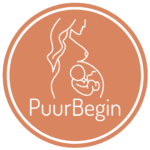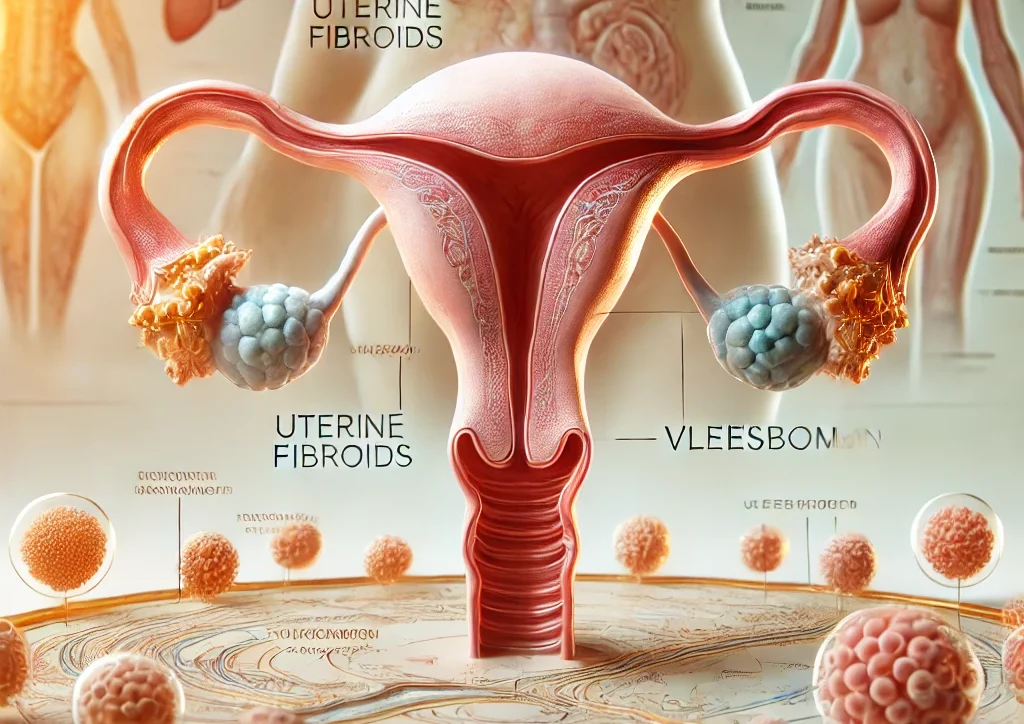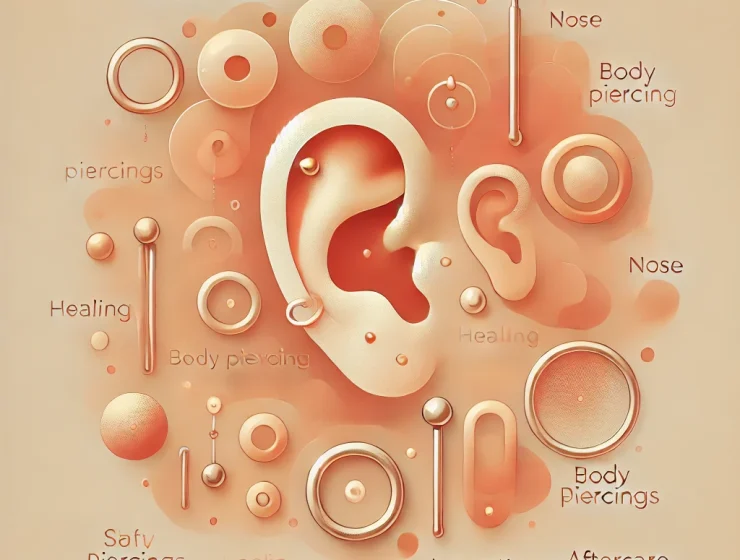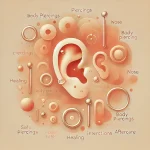Vandaag duiken we in een onderwerp dat vaak vragen oproept: vleesbomen en zwangerschap. Wat zijn vleesbomen precies? Moet je je zorgen maken als je zwanger bent en vleesbomen hebt? En wat kun je doen om gezond en gelukkig door je zwangerschap te gaan, ondanks de aanwezigheid van deze goedaardige gezwellen? In dit artikel beantwoorden we al je vragen en geven we je handige tips en informatie, zodat je met een gerust hart verder kunt genieten van je zwangerschap. Laten we beginnen!
Wat zijn vleesbomen?
-
- Intramuraal: Gelegen in de wand van de baarmoeder;
-
- Subserosaal: Buiten de baarmoederwand, onder het buitenste membraan;
-
- Submucosaal: Binnen de baarmoederholte, onder het binnenste slijmvlies;
-
- Pedunculated: Aan een steeltje verbonden met de baarmoederwand.
Vleesbomen hebben niet alleen invloed op je algehele gezondheid, maar kunnen ook een rol spelen tijdens de zwangerschap. Daarom is het essentieel om goed geïnformeerd te zijn als je zwanger wilt worden of al in verwachting bent.
Oorzaken vleesbomen
De exacte oorzaken van vleesbomen zijn niet volledig bekend. Echter, deskundigen denken dat een combinatie van genetische, hormonale en omgevingsfactoren een rol speelt. Ten eerste kunnen erfelijkheid en familiegeschiedenis invloed hebben: als je moeder of zus vleesbomen heeft gehad, loop je een hoger risico. Daarbij komt dat hormonale veranderingen tijdens de menstruatiecyclus bijdragen aan de groei van vleesbomen. Hormonen zoals oestrogeen en progesteron stimuleren de groei van het baarmoederslijmvlies, en kunnen ook het ontstaan van vleesbomen bevorderen.
-
- Genetische aanleg: Familiegeschiedenis kan een rol spelen bij het ontwikkelen van vleesbomen.
-
- Hormonale invloeden: Veranderingen in oestrogeen- en progesteronniveaus dragen bij aan hun groei.
-
- Omgevingsfactoren: Lifestyle en voedingsgewoonten kunnen een effect hebben.
Naast de eerder genoemde factoren kunnen ook leeftijd en etniciteit invloed uitoefenen. De meeste vleesbomen ontstaan bij vrouwen in de leeftijd van 30 tot 40 jaar. Verder blijkt uit onderzoek dat vrouwen van Afrikaanse afkomst vaker last hebben van vleesbomen dan vrouwen van Europese afkomst. Andere bevindingen geven aan dat obesitas en een gebrek aan vitamine D mogelijk ook bijdragen aan het risico op het ontwikkelen van vleesbomen. Belangrijk is om te zeggen dat, hoewel deze factoren een zekere invloed kunnen hebben, elke vrouw uniek is en de exacte oorzaken sterk kunnen variëren.
| Factor | Invloed |
|---|---|
| Genetica | Verhoogd risico bij familiegeschiedenis |
| Hormonen | Stimuleren groei van vleesbomen |
| Leeftijd | Meestal ontstaan tussen 30-40 jaar |
Symptomen vleesbomen
Vleesbomen, ook wel bekend als myomen of fibromen, kunnen tijdens de zwangerschap verschillende **symptomen** veroorzaken. Hoewel niet iedereen symptomen ervaart, kunnen vrouwen die dat wel doen last hebben van veranderingen in hun menstruatiecyclus, zoals heviger en langere bloedingen. Andere vaak voorkomende symptomen zijn:
-
- Een drukkend gevoel in de onderbuik
-
- Frequent urineren door druk op de blaas
-
- Bekkenpijn of ongemak
Tijdens de zwangerschap kunnen vleesbomen groter worden door hormonale veranderingen, waardoor de symptomen verergeren. Dit kan leiden tot complicaties zoals:
| Complicatie | Beschrijving |
|---|---|
| Vervorming van de baarmoeder | Kan leiden tot een ongunstige ligging van de baby. |
| Placenta-abruptie | Waarbij de placenta te vroeg loslaat. |
| Vroegtijdige weeën | Door irritatie van de baarmoederwand. |
Het is belangrijk om op de hoogte te zijn van deze symptomen en complicaties zodat je, indien nodig, tijdig medische hulp kunt inschakelen. Verloskundigen PuurBegin raden aan om regelmatig controles te laten uitvoeren om de gezondheid van zowel moeder als baby te waarborgen.
Wat zijn de gevolgen van een vleesboom?
Vleesbomen, ook bekend als myomen of fibromen, kunnen verschillende invloeden hebben op zowel jouw dagelijkse leven als je voornemen om zwanger te worden. Ten eerste kunnen deze goedaardige gezwellen pijnlijke menstruaties en een opgeblazen gevoel veroorzaken, wat jouw comfort en algemene welzijn aanzienlijk kan beïnvloeden. Verder kunnen ze leiden tot frequente plasklachten, omdat ze op je blaas drukken. Dit klinkt misschien ontmoedigend, maar er zijn behandelingen en methoden om de symptomen te beheersen en de impact te verminderen. Overleg altijd met een specialist om de beste aanpak voor jou te bepalen.
-
- Pijnlijke menstruaties: vaak heviger en langer dan normaal.
-
- Buikpijn en een opgeblazen gevoel: door de druk die de vleesbomen uitoefenen op omliggend weefsel.
-
- Frequent plassen: doordat grotere vleesbomen op de blaas drukken.
Daarnaast kunnen vleesbomen, afhankelijk van hun locatie en grootte, de vruchtbaarheid beïnvloeden en complicaties tijdens de zwangerschap veroorzaken. Bijvoorbeeld, vleesbomen kunnen de innesteling van een bevrucht eitje bemoeilijken of ervoor zorgen dat er minder ruimte is voor de baby om te groeien. Hoewel dit eng klinkt, is het goed om te weten dat veel vrouwen met vleesbomen zonder problemen zwanger worden en een gezonde baby op de wereld zetten. Het is cruciaal om goed op de hoogte te zijn van je lichaam en regelmatig medische controles te ondergaan.
| Klinische Gevolgen | Symptomen |
|---|---|
| Innestelingsproblemen | Moeilijkheden bij bevruchting |
| Minder ruimte voor de baby | Vroeggeboorte |
| Verhoogde kans op keizersnede | Complicaties tijdens de bevalling |
Hoewel de effecten van vleesbomen verschillen van persoon tot persoon, is het cruciaal om aandacht te besteden aan de signalen die je lichaam geeft en om eventuele zorgen of symptomen met je verloskundige te bespreken. Hier bij Verloskundigen PuurBegin staan we altijd klaar om je vragen te beantwoorden en je door elk stadium heen te begeleiden.
Kan een vleesboom een miskraam veroorzaken?

Hoewel de meeste vleesbomen (myomen) geen problemen veroorzaken tijdens de zwangerschap, kunnen ze in sommige gevallen wel complicaties teweegbrengen. Een belangrijk punt hierbij is hun locatie en grootte. Wanneer een vleesboom zich bijvoorbeeld in de baarmoederholte bevindt of groot genoeg is om de normale groei van de baby te belemmeren, neemt het risico op een miskraam toe. Dit gebeurt gelukkig relatief zelden. Toch is het cruciaal om tijdens regelmatige controles bij ons, Verloskundigen PuurBegin, de vleesbomen goed in de gaten te houden.
Er zijn een paar specifieke situaties waar je extra alert op moet zijn:
-
- Bloedingen: Bij sommige vrouwen kunnen vleesbomen intensieve bloedingen veroorzaken, wat risico’s met zich meebrengt.
-
- Verminderde ruimte: Grote vleesbomen kunnen de ruimte in de baarmoeder verkleinen, wat de ontwikkeling van de baby beïnvloedt.
-
- Vervroegde weeën: De aanwezigheid van grote vleesbomen kan ook vervroegde weeën of een vroeggeboorte teweegbrengen.
| Symptoom | Mogelijke oorzaak |
|---|---|
| Ernstige buikpijn | Vleesbomen die zich vervormen of afsterven |
| Bloedverlies | Vleesbomen die tegen de baarmoederwand drukken |
Tenslotte is het goed om te weten dat niet alle vleesbomen evenveel risico’s met zich meebrengen. Door ons regelmatig te bezoeken en goed advies te vragen bij Verloskundigen PuurBegin, kunnen we samen zorgen voor een veilige en gezonde zwangerschap.
Kan een vleesboom loslaten?
Het is zeldzaam, maar soms kan een vleesboom, ook wel bekend als een myoom, daadwerkelijk loslaten. Dit gebeurt meestal omdat het lichaam de vleesboom niet meer herkent als deel van zichzelf. Hierdoor kan het immuunsysteem reageren en de vleesboom afstoten. Als een vleesboom loslaat, gaat dit vaak gepaard met symptomen zoals hevige pijn, een plotselinge bloeding of zelfs weeënachtige krampen. Het is essentieel dat je direct contact opneemt met je verloskundige als je vermoedt dat dit gebeurt. Waakzaamheid is belangrijk, zeker tijdens de zwangerschap, omdat een loslatende vleesboom complicaties kan veroorzaken.
Wanneer een vleesboom loslaat, kan het variëren in ernst. Soms is medische interventie nodig, maar in andere gevallen kan het lichaam het zelfstandig oplossen zonder verdere complicaties. Symptomen om op te letten zijn onder andere:
-
- Plotselinge, hevige buikpijn
-
- Overmatige vaginale bloeding
-
- Krampen
Indien je deze symptomen ervaart en je bent zwanger, dan is het cruciaal om contact op te nemen met je zorgverlener. Hieronder hebben we een tabel opgenomen met de mogelijke acties die je kunt ondernemen:
| Symptoom | Actie |
|---|---|
| Pijn | Neem pijnstillers, altijd na overleg met je verloskundige |
| Bloedingen | Bel direct je zorgverlener |
| Krampen | Rust uit en neem contact op voor advies |
Kun je vleesbomen zien op een echo?
Bij Verloskundigen PuurBegin krijgen we vaak de vraag of vleesbomen gedetecteerd kunnen worden met een echo. Het antwoord is ja! Tijdens een standaard echografie kunnen we vleesbomen – ofwel myomen – meestal goed in beeld brengen. Deze goedaardige gezwellen, die ontstaan uit spierweefsel van de baarmoeder, zijn zichtbaar als ronde of ovale structuren. Ze variëren in grootte, wat kan betekenen dat ze soms moeilijker te zien zijn, vooral als ze klein zijn. Toch biedt een echo in veel gevallen voldoende duidelijkheid om vleesbomen te identificeren.
Voordelen van echografie voor het detecteren van vleesbomen:
-
- Niet-invasieve methode
-
- Snel resultaat
-
- Geen straling benodigd
Veelgestelde vragen:
| Vraag | Antwoord |
|---|---|
| Kunnen alle vleesbomen gezien worden? | Grote vleesbomen vaak wel, kleinere mogelijk niet altijd. |
| Heeft een vleesboom altijd symptomen? | Nee, sommige vrouwen ervaren geen symptomen. |
Hoewel echografie een uitstekende techniek is om vleesbomen te detecteren, kan het soms nodig zijn om verdere diagnostische methoden te gebruiken, zoals MRI of hysteroscopie, voor een nauwkeuriger beeld. Het is altijd belangrijk om eventuele zorgen te bespreken met je verloskundige of arts, zodat we samen de beste zorg kunnen bieden tijdens jouw zwangerschap.
Hoe snel groeit een vleesboom?
-
- Hormonale schommelingen, vooral oestrogeen en progesteron
-
- Genetische aanleg
-
- Dieet en levensstijl
| Groeifase | Duur |
|---|---|
| Langzame groei | Meerdere jaren |
| Snelle groei | Enkele maanden |
Is een vleesboom een tumor?
-
- Meestal asymptomatisch
-
- Komen vaak voor tijdens de vruchtbare jaren
-
- Kunnen meerdere of enkelvoudig zijn
| Symptoom | Beschrijving |
|---|---|
| Zware menstruatie | Overmatig bloedverlies tijdens de menstruatie |
| Pijn | Buikpijn of pijn in de onderrug |
| Blaasdruk | Drukgevoel of vaker moeten plassen |
Vleesbomen pijn in been
Bij sommige vrouwen kunnen vleesbomen niet alleen voor ongemakken in de baarmoeder zorgen, maar ook uitstralende pijn in het been veroorzaken. Deze pijn ontstaat wanneer een vleesboom tegen zenuwen of bloedvaten in de bekkenstreek drukt. Dit kan leiden tot een doffe pijn of een zeurend gevoel dat doorloopt naar het been. Het is belangrijk om te herkennen dat deze pijn kan variëren, soms subtiel en makkelijk te negeren, maar op andere momenten intens en storend.
Als je tijdens de zwangerschap last hebt van deze uitstralende pijn, zijn er verschillende manieren om verlichting te vinden. Het volgende kan helpen:
-
- Rust en ontspanning: Pijnlijke episodes kunnen verminderen door rust en ontspanning.
-
- Lichte rek- en strekoefeningen: Helpen de doorbloeding te verbeteren en spanning te verlichten.
-
- Warmtebehandeling: Een warmtekussen op de onderrug kan zorgen voor tijdelijke verlichting.
| Methode | Effectiviteit |
|---|---|
| Rust en ontspanning | Hoog |
| Rek- en strekoefeningen | Middelmatig |
| Warmtebehandeling | Tijdelijk |
Kan een vleesboom gevaarlijk zijn?
-
- Hevige menstruatiebloedingen
-
- Buik- en rugpijn
-
- Frequent urineren
Niet alle vleesbomen vereisen directe medische behandeling, maar het kan verstandig zijn om regelmatig gecontroleerd te worden door je verloskundige. Bij Verloskundigen PuurBegin raden we aan om eventuele zorgen altijd met ons te bespreken. We staan voor je klaar en zetten de gezondheid van jou en je baby voorop.
Vleesbomen verwijderen
| Behandeling | Beschrijving |
|---|---|
| Medicatie | Medische behandeling om symptomen te verlichten zonder de vleesboom zelf te verwijderen. |
| Chirurgie | Invasieve procedures zoals myomectomie, uitgevoerd alleen als het absoluut noodzakelijk is. |
| Natuurlijke remedies | Gebruik van dieetaanpassingen en zachte therapieën om de symptomen te beheersen. |
Samenvatting
Bedankt dat je de tijd hebt genomen om ons artikel over vleesbomen en zwangerschap te lezen. We hopen dat je nu beter begrijpt wat vleesbomen zijn, hoe ze jouw zwangerschap kunnen beïnvloeden en welke behandelingsopties er zijn.
Bij Verloskundigen PuurBegin staan we altijd klaar om je te ondersteunen en al jouw vragen te beantwoorden. Iedere zwangerschap is uniek en samen kunnen we ervoor zorgen dat je de zorg krijgt die je nodig hebt. Heb je na het lezen van dit artikel nog vragen of twijfels? Aarzel dan niet om contact met ons op te nemen – we helpen je graag verder.
Blijf goed voor jezelf zorgen en onthoud dat je niet alleen bent in deze reis. Wij staan aan jouw zijde, elke stap van de weg. Tot snel bij Verloskundigen PuurBegin!
Blijf op de hoogte!
Volg ons op social media voor het laatste nieuws en een kijkje achter de schermen bij Verloskundigen PuurBegin in Kampen.
Ontdek de dagelijkse avonturen van onze verloskundigen, waardevolle tips voor aanstaande ouders en inspirerende verhalen uit de praktijk.
Klik op de onderstaande knoppen en blijf verbonden met ons hartverwarmende team!
 |
 |
Hartelijke groet,
Verloskundigen PuurBegin
Adres: Orkestlaan 148, 8265RC Kampen
Telefoon: 085 40 19 095






